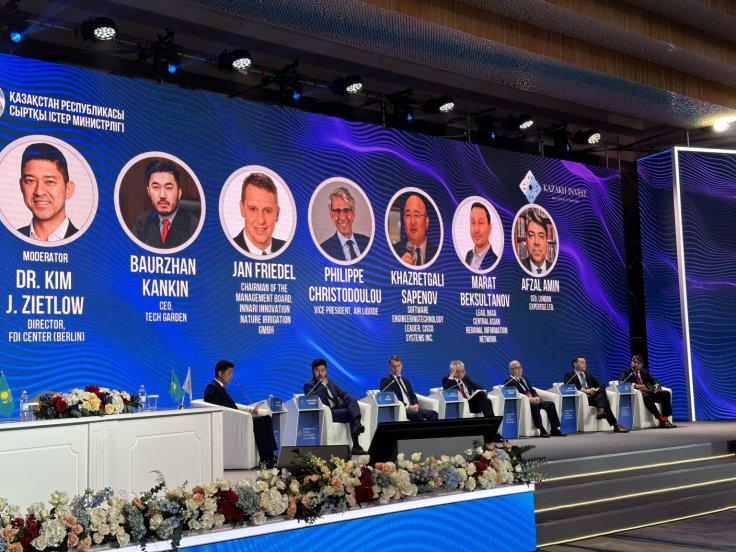
In today's world, the global economy faces numerous challenges, including geopolitical tensions, distrust among global powers, and environmental concerns. These hurdles have disrupted supply chains, heightened inflation, and fostered economic uncertainty across continents.
Amidst this backdrop, international investors are actively seeking markets offering stability and promising investment destinations. Kazakhstan, blessed with a strategic geopolitical position, provides a stable and secure environment amidst global volatility. Our commitment to political and economic stability, combined with a forward-looking vision, positions us as a safe and reliable investment haven at a time when the world craves certainty and growth potential.
Responding to global economic trends, Kazakhstan has embarked on significant economic reforms aimed at diversifying and modernizing our economy. We are actively developing sectors like renewable energy, information technology, and agriculture, which are resilient to global market fluctuations, offering a diversified portfolio of investment opportunities.
In line with our efforts to diversify the economy away from traditional oil and gas, foreign investments are considered the main driver of Kazakhstan's economic growth. Keeping ESG standards in mind, Kazakhstan aims to attract no less than $150 billion in foreign investment by 2029. To achieve this, we have created favorable conditions for investors, including the enhancement of investment support instruments.
We have established 14 special economic zones. Companies located in these zones receive preferential treatment, including exemptions from corporate income tax, land tax, property tax, VAT, and customs duties.
A recently held Kazakhstan Global Investment Roundtable (KGIR) in Astana marked a pivotal moment in fostering global economic collaboration. This event brought together influential figures, including Prime Minister Alikhan Smailov, industrial leaders, financial experts, and policymakers from around the world. Over 1,000 representatives participated from various countries, including those from Europe, the Middle East, Asia, and North America.
KGIR-2023 played a role in advancing economic collaboration, witnessing the signing of agreements across a wide spectrum of sectors. Noteworthy areas of emphasis included the agro-industrial complex, mining and metals industry, healthcare, light industry, mechanical engineering, education, and the production of construction mixtures and chemical products. In total, 28 documents valued at $1.8 billion were signed during the event. Healthcare emerged as a focus area, demonstrated by agreements with Pfizer for the supply and production of the Prevenar 20 vaccine in Kazakhstan, offering protection against 20 pneumococcal infection serotypes. Furthermore, F. Hoffman-La Roche committed to localizing the production of three biotechnological drugs for breast cancer treatment.
KGIR addressed key topics essential for economic growth and sustainability in the region. Discussions ranged from the application of investment in advanced technologies and ensuring food security to developing transport and logistics and unlocking the potential of regional clusters. These discussions underscored the event's commitment to advancing progress and tackling urgent global challenges.
Kazakhstan's Prime Minister Smailov highlighted the nation's consistent success in securing up to 70% of foreign investment in Central Asia. This resilience is particularly noteworthy given the global context of a 12% decline in foreign direct investment in 2022. By contrast, Central Asia experienced a remarkable 39% increase, reaching $10 billion.
In conclusion, KGIR not only facilitated significant agreements but also showcased Kazakhstan's capacity to attract foreign investment and foster global collaboration.
As we move forward, Kazakhstan remains committed to being a key player in Central Asia in driving economic collaboration and prosperity. While the global economy faces myriad challenges, Kazakhstan offers a unique combination of stability, strategic location, and commitment to economic diversification and sustainability. Our nation's efforts to adapt to the changing economic landscape and embrace reforms demonstrate readiness to engage with the global community in these complex times. As we navigate these uncertain times, we believe that collaboration and mutual understanding are key to unlocking the potential for growth and prosperity.
(Nazira Nurbayeva, Deputy Minister of Foreign Affairs of Kazakhstan)
Disclaimer: IBT does not endorse the above content.









